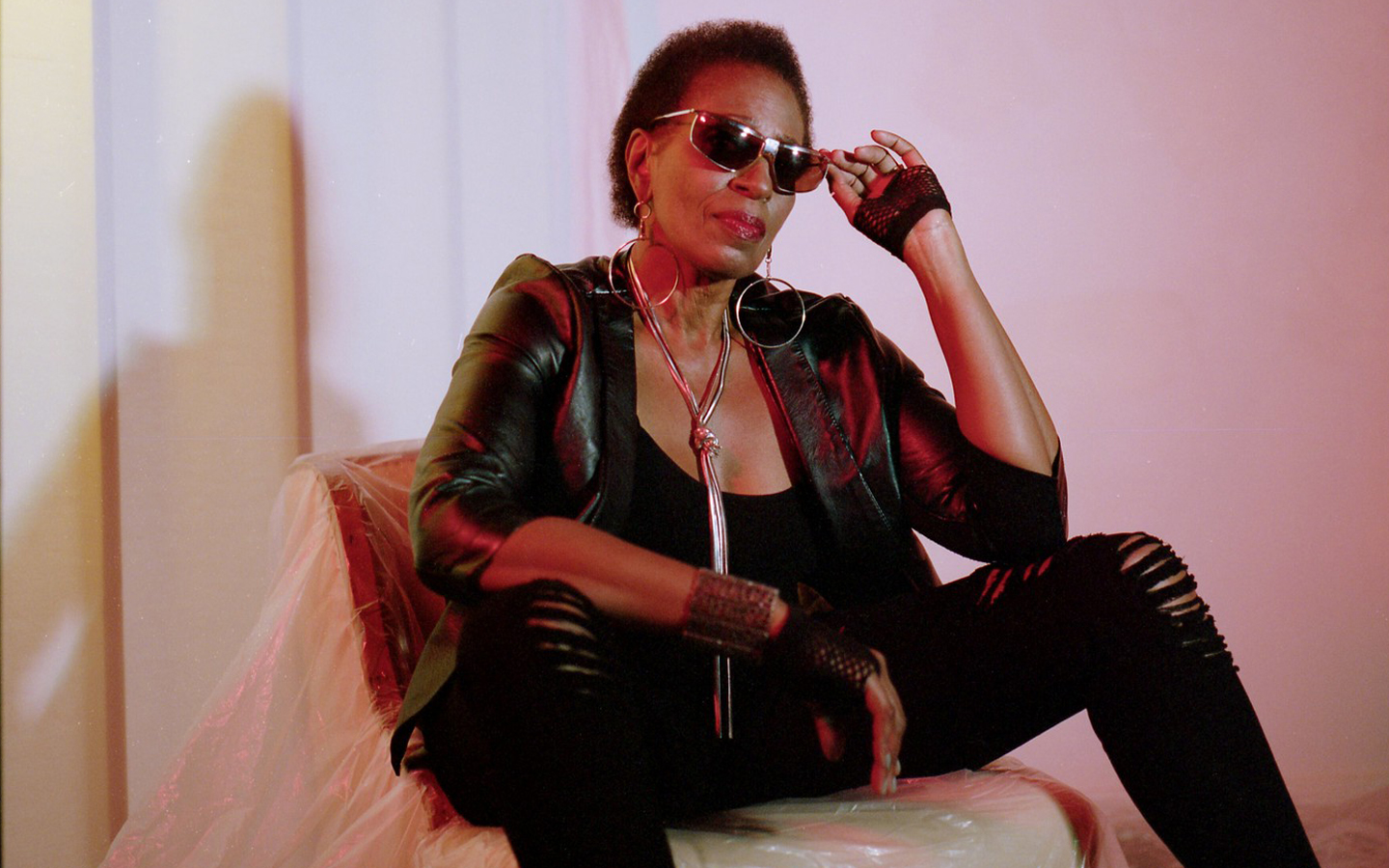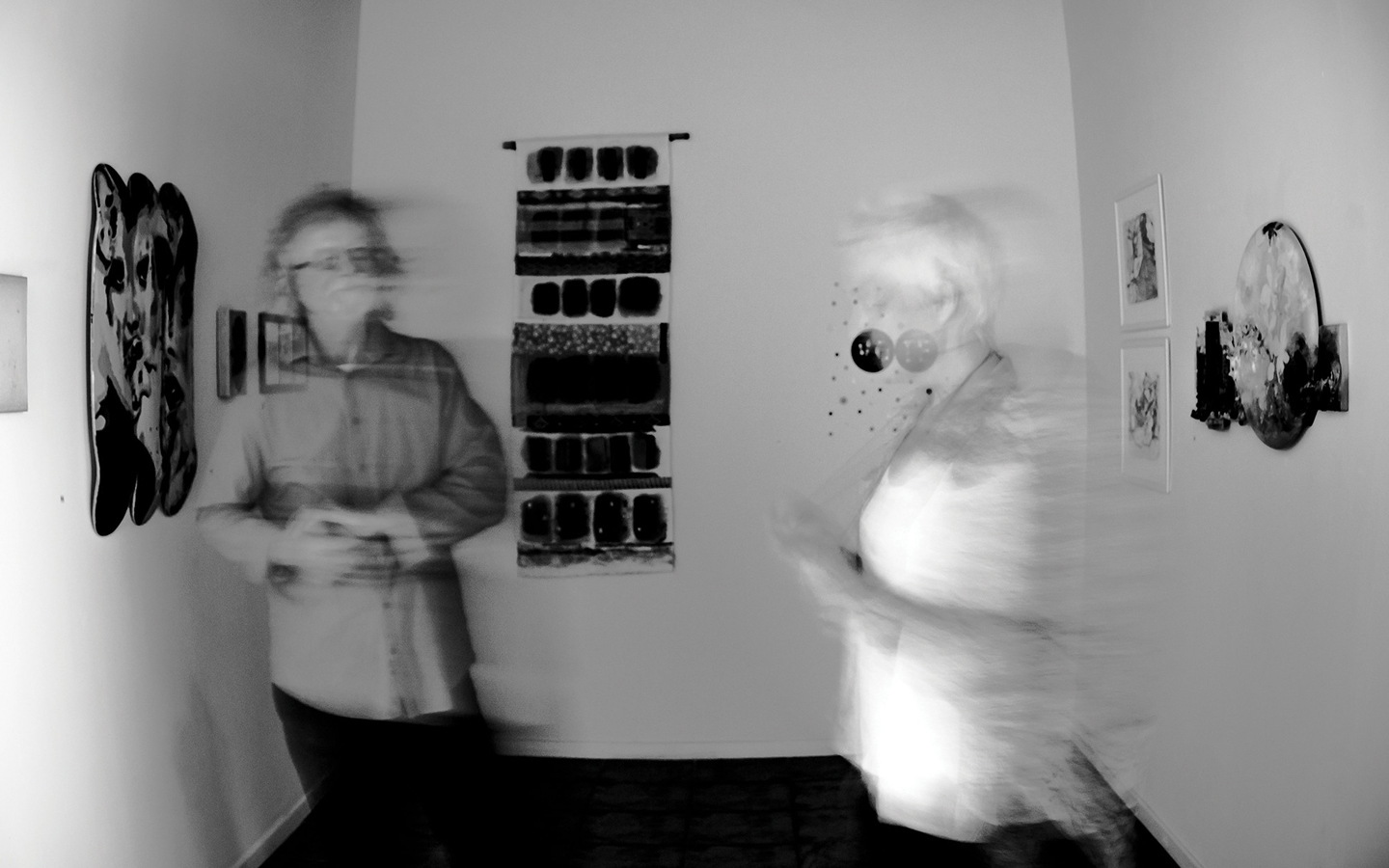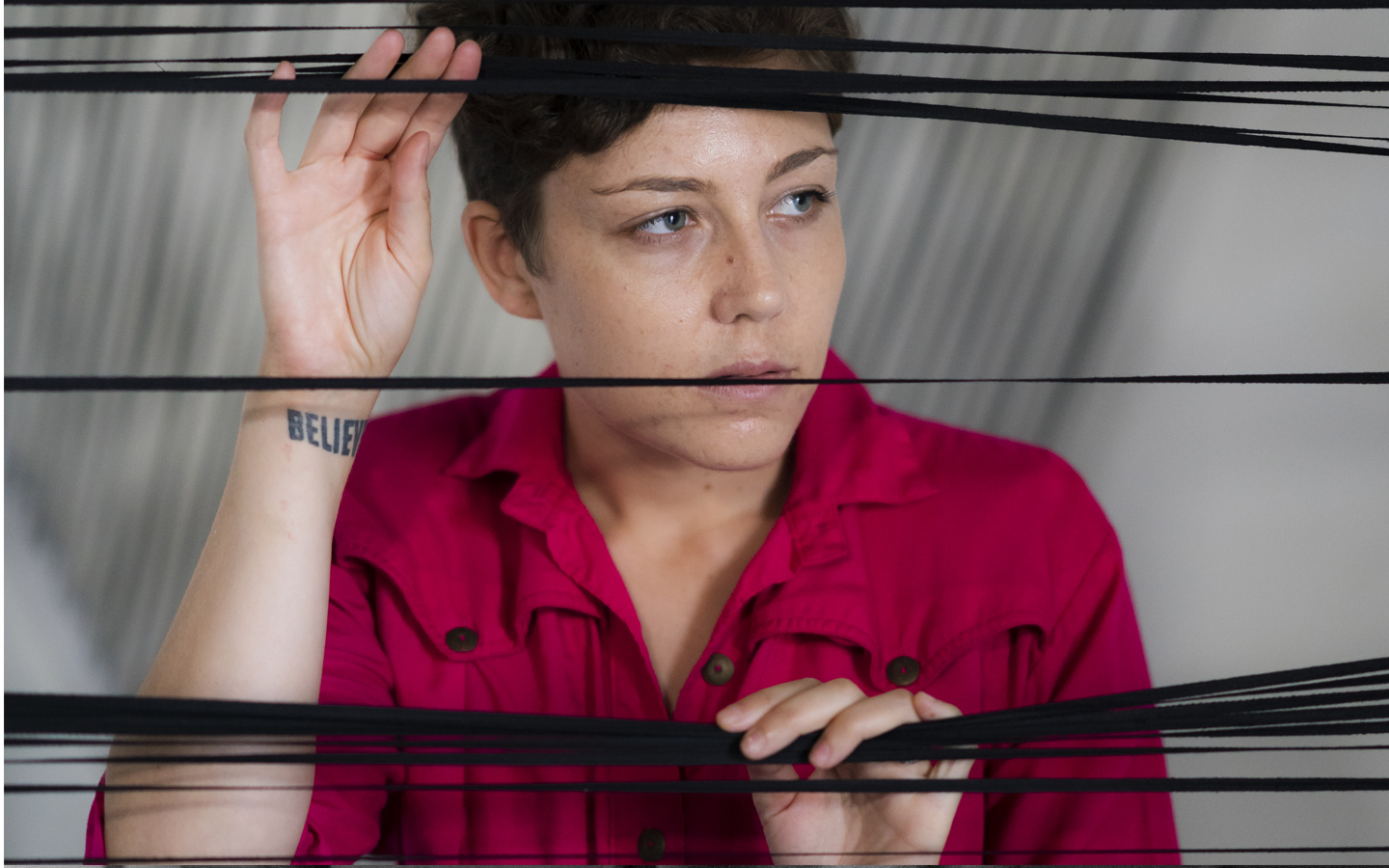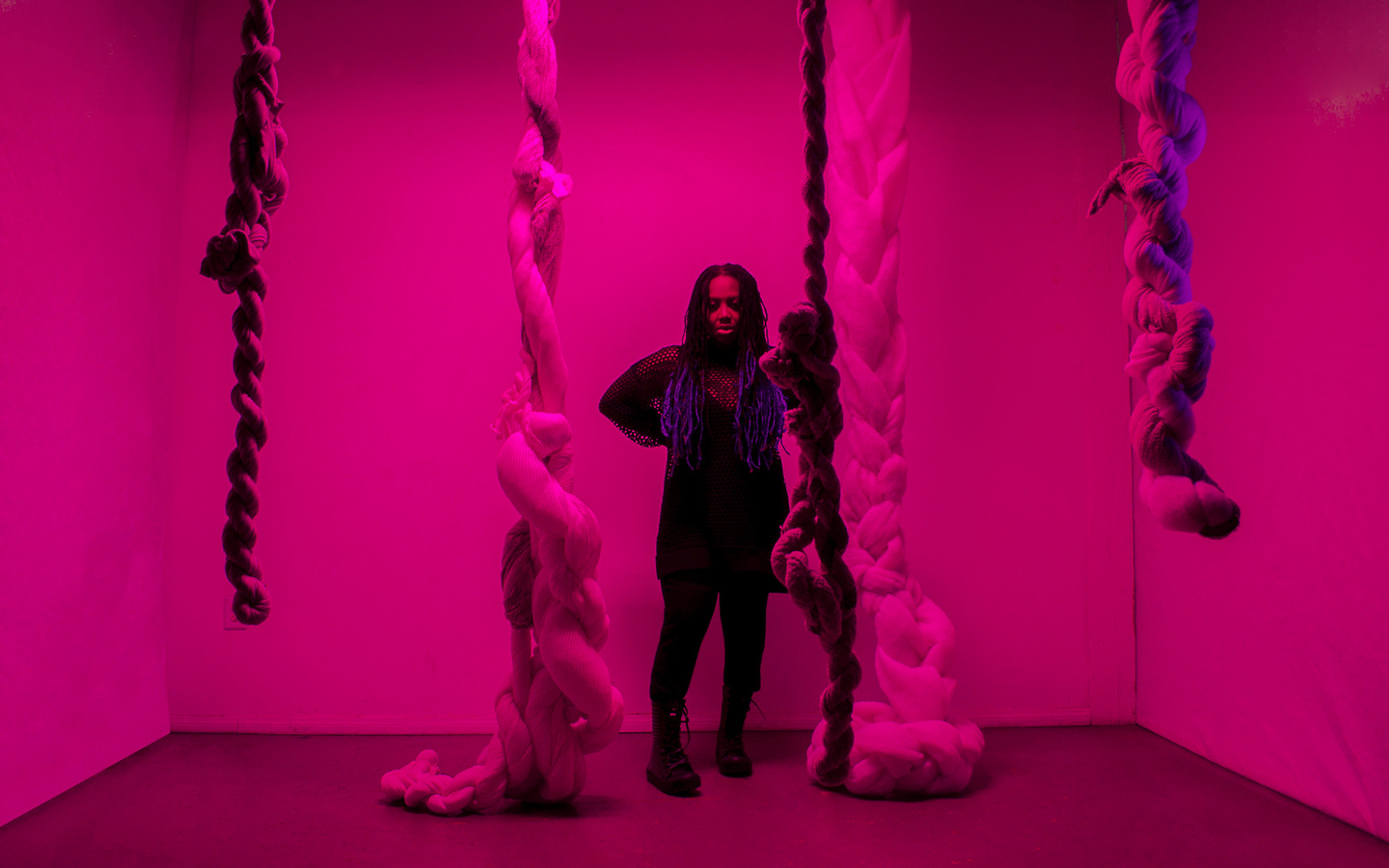
Aziza Miller
TEXT PATRICK QUINN
VISUAL GINA CANAVAN
Aziza Miller has been labeled many things: a true New Yorker, a musician’s musician, and as she’s proud to call herself, “old-school.” Just don’t call her New York’s “best kept secret.” She’s heard that one a few too many times. This multi-talented piano player, composer, and spoken-word vocalist is one secret that needs to be shared.
Aziza Miller first came onto the scene in the mid 70s when she was the musical director for Natalie Cole. During that time, she collaborated with Cole on the song “La Costa,” which became a major hit. That song was later covered by Ahmad Jamal, who also invited Miller to work on music with him. In 1979, she was signed by Arista records and released her first solo album City Living. Since then, she has continued to release music as well as headline at clubs in New York and throughout the country. She is also a teacher, author, and was musical director for Rain Pryor’s off-Broadway production of Fried Chicken & Latkes, and one of the keyboard players for Oprah Winfrey’s Broadway production of The Color Purple. But like with all good musicians, none of this came easily. It takes practice, patience, and as the late, great Sidney Bechet once said, “You gotta mean it and you gotta treat it gentle.”
“I fell in love with the piano when I was about eight years old. I listened to my dad’s collections of Dakota Staton, Sarah Vaughan, Count Basie, Shirley Scott, Eddie Lockjaw Davis, Ella Fitzgerald, and Duke Ellington. When I got older, I listened to Tania Maria, Mongo Santamaria, Celia Cruz, Art Blakey, Horace Silver, Herbie Hancock, and Cal Tjader,” she says. “When I attended the High School of Music and Art, there were jam sessions after school on Fridays with everything that was popular back then in jazz, Latin, and R&B. The teachers would let us use the practice room for jam sessions. And we would all go in there, piano players, bass players, all sorts of musicians, and we would jam on the songs that were popular back then. So yeah, it was in high school — that’s when I knew I wanted to make music my career.”
Miller’s parents were supportive of her desire to make music, but they did ask her to complete her education. She agreed and went on to receive a Bachelor’s Degree in Theory and a Masters in Music Education. After graduating, she taught music for 16 years in New York public schools. One of her students was singer-songwriter Alicia Keys. But the real honor came in 1997, when she received the Presidential Scholar Distinguished Teacher Award from President Bill Clinton.
“I knew that I wanted to jump right into music. However, my parents asked me to finish college and get that degree first. And I don’t regret it because it took me in an additional direction. I found out that when it comes to educating young minds, I’m good at it, and I wouldn’t have known that had I not done it,” she explains. “I was at a performing arts school teaching a Jazz Vocal Improvisation choir, as well as a regular choir. I also taught theory and ear-training. The award itself was so unexpected, I never saw it coming. It was an honor. There were 50 teachers, one from each state, and I was the one selected from New York.”
Before Miller could teach music, she had to learn about music, which she did by working with Natalie Cole, Ahmad Jamal, Cecil Payne, Ray Bryant, and the countless amazing musicians she played with in such clubs as Ashford and Simpson’s Sugar Bar, The Iridium, Blues Alley, Joe’s Pub, Town Hall, and the Blue Note. If Aziza Miller is old-school, it’s because she believes the best way to hear music is to hear it live, and the best way to sell music is to play it live.
“Oftentimes, it’s not about how many notes you play, but what you’re saying. What do you have to say, what is your story? Are you trying to tell me you’re a technician, because sometimes that’s what it sounds like,” she says.
She adds, “I compare players who don’t come up for air in their solos to people who talk about themselves and you can’t get a word in. Because then you’re not putting that simplistic conversational type thing into your delivery and that’s an element that, personally, I like. I like conversation. I was brought up to think that music solos are a conversation.”
Miller continues to write and play, which is what she loves to do. “I’m introducing my music that way. And people love the new music. They love it as much as I do and my musicians do, which is good because if I can’t play it live, I’m not going to be a happy camper,” she asserts. “I don’t care what the suits say. I go to the people. All the radio people say is ‘when you coming out with something new?’ And I say ‘I got something new, come see a show.’ I tell you, sometimes I have to laugh to keep from crying.”
Miller was not only Natalie Cole’s music director, she was the first female orchestra conductor and music director for a major star.
This gave her a unique perspective into what has traditionally been a male-dominated field. One could argue that jazz has been a male- dominated musical genre. But Miller has managed to survive and thrive in both worlds. Talent is a big part of it, but perhaps strength of character plays an equal part.
“When I was coming up, students were more thirsty for knowledge. We didn’t have reality shows. We didn’t have programs that said ‘whoever gets the most votes is the best’. I remember going home feeling bad because I messed up, because I wasn’t on my game. It didn’t mean that they were better. It just meant that they were more prepared,” she relates.
She says that all of this helped her teach students about preparation, study, and application.
“There was no hype. If you did it and did good, you were rewarded. And if you didn’t, you were gently told to work on this a little more. And then it was up to you if you wanted to get better. When I compose, I go different places because I hear different things. And I really believe we are the product of what we have ingested and digested in our experiences.”
Miller is happy that her parents gave her the opportunity to be exposed to so many different styles of music. “I guess I’m just old-school to the max. If I had to do it over, I’d do it the same way,” she muses.
Jazz music is special. It’s one of the few art forms that originated in the United States. It was born in places like New Orleans, Kansas City, Chicago, St. Louis, and New York City. It breathes, it’s alive. Ornette Coleman once said, “Jazz is the only music in which the same note can be played night after night but differently each time.” Aziza Miller is a jazz musician and composer who has an intimate understanding of that philosophy.
“Music is amazing. I don’t know what I’d do without it. I’m in it to win it. I ain’t in it to quit,” she attests. “Because it’s a passion. It’s what I’ve been sent here to do, and I want to do it to the best of my abilities. And as long as I can perform and find venues that allow me to perform my music, we’re good.”
Miller firmly believes in and epitomizes the philosophy that “When you have a gift, you’re supposed to share. You’re supposed to use it to bring joy to other people. Even if there’s a song that you don’t feel like playing anymore, you have to think about the people who came that night, because that song does something for them. So you have to play it as if it’s the first time you’ve done it. And you share that love with people because they need that. And as musicians, we are teachers and we are healers.”
You may also like
SoLA Gallery
The gallery recently launched programs including the Black Women Artists Advisory Committee, and an
Nicole Lexi Davis
There is something magical and ethereal about capturing a great moment in sound.
Lalah Hathaway
“You need to have a dream and be ready to change the shape of the dream as your career unfolds.”




